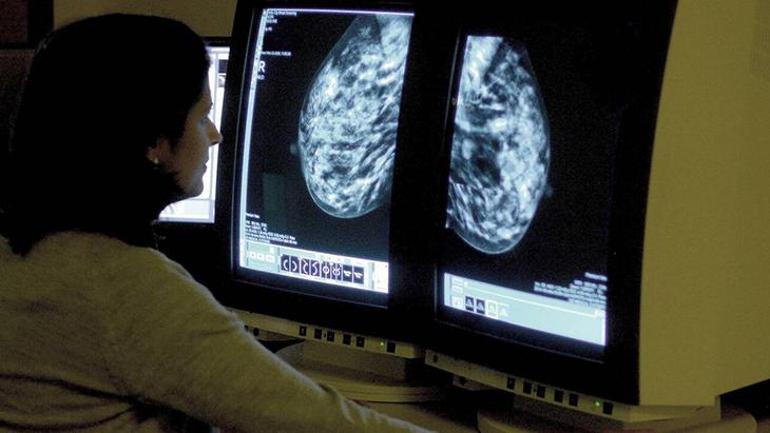The AI revolution in breast cancer! What doctors say: 'We analyze the data, but we understand it.'

Betül Yasemin Kökbek / Milliyet.com.tr - According to experts, artificial intelligence, which pervades a large portion of our lives, is no longer just a technological tool ; it has become physicians' most powerful assistant in the fields of radiology and pathology . In particular, in the evaluation of mammography images, AI identifies even the smallest details that might otherwise be overlooked, increasing early diagnosis rates. Experts believe that with AI's assistance, early diagnosis, personalized treatment, and a high survival rate in breast cancer could become standard practice. Breast Surgeon Prof. Dr. Fatih Aydoğan , who actively utilizes these innovations in his clinical practice, explained to Milliyet.com.tr how AI is used in the process from diagnosis to treatment and how it is transforming patients' lives in the fight against breast cancer.

INSPIRED BY VISITS TO KOREA AND SINGAPORE
Prof. Dr. Fatih Aydoğan, the first Turkish scientist to receive an award from the American Association of Breast Surgeons, is among those who have integrated artificial intelligence into both diagnostic and therapeutic processes. Beginning this journey during visits to Korea and Singapore, two leading centers for artificial intelligence in medicine, Prof. Dr. Aydoğan gained important observations regarding the integration of artificial intelligence into the diagnosis and treatment of breast cancer. Noting that Korea was one of the first countries where artificial intelligence was first used for diagnostic purposes, Prof. Dr. Aydoğan said, " During my visit to ASAN Medical Center, the pilot application center for the world's first approved AI-assisted mammography system, I gained comprehensive information about the clinical use of these systems. Singapore, on the other hand, is a country that strategically invests in AI in line with its 'smart nation' vision. During my visit to Singapore, we initiated a multicenter study comparing multidisciplinary council decisions with AI recommendations in breast cancer treatment planning. Today, we actively use AI systems in breast cancer management, both in council meetings and in radiologic examinations. Furthermore, our pathology department, a pioneer in digital pathology, is successfully integrating AI applications in breast cancer diagnosis ."
Prof. Dr. Aydoğan noted that while mammography evaluations are performed by two physicians in some countries, in most centers in Turkey, this process is carried out by a single physician. He emphasized that artificial intelligence acts like a second pair of eyes, detecting small lesions with high precision, especially in women with dense breast tissue, and contributing to early diagnosis. Prof. Dr. Fatih Aydoğan noted that the most surprising aspect of artificial intelligence is that it doesn't focus solely on breast cancer when examining mammogram images. He explained, "It can also predict a patient's risk of developing cardiovascular disease in the future by analyzing calcifications (calcium deposits) in the breast vessels. This demonstrates that artificial intelligence opens a new door not only in cancer diagnosis but also in general health management ."

'ARTIFICIAL INTELLIGENCE ANALYSIS, DOCTOR DECIDES'
Prof. Dr. Aydoğan strongly emphasized that artificial intelligence is not a system that replaces doctors in the diagnosis and treatment of breast cancer, but rather an aid that strengthens the physician's decision-making process. He stated that in radiology and pathology, artificial intelligence analyzes images, flags potential lesions, and presents data to physicians much more quickly and securely. Prof. Dr. Aydoğan predicted that when artificial intelligence is fully integrated into clinical systems, reporting times will be shortened and unnecessary additional tests will be reduced, and he used the following words:
However, it's important to remember that AI only sees data. The doctor is the one who sees, feels, and understands the patient. An algorithm can interpret an image, but it can't evaluate the patient's history, genetic risk, expectations, and concerns. In short, AI performs the analysis, and it's always the doctor who makes the decision.
The expert, noting that AI integration is still ongoing, explained that several different programs are currently used in mammography evaluations and that they aim to select the most clinically reliable and consistent option by testing these systems together. He noted that AI can sometimes successfully detect a very small tumor, but can sometimes miss an existing lesion. Therefore, he emphasized that the most accurate results are achieved when the physician's clinical experience and the analytical power of AI are combined. Prof. Dr. Aydoğan continued by sharing an interesting patient experience:
"We conducted an evaluation at the board to make a treatment decision for a very elderly patient. Due to his age, I brought this case to the patient forum of an international association of which I am a member and sought the opinions of colleagues . One commenter suggested I also seek the opinion of artificial intelligence. Indeed, the analytical and detailed evaluation performed by the system was a truly surprising and educational experience for me."
Artificial intelligence is being used not only in the diagnosis and treatment of breast cancer, but also in pathology. Speaking to DHA on the subject, Pathology Specialist Prof. Dr. İlknur Türkmen said, "Support is needed in pathology due to the increasing number of cancer cases and the decreasing number of pathologists. This is where AI assistants play a crucial role. Today, we can use AI in routine processes. By utilizing AI, especially in repetitive and time-consuming tasks, we have the opportunity to dedicate time to more critical patient areas. Therefore, AI support is of great importance to us. Today, AI can even predict the response to chemotherapy during the diagnosis phase. This allows us to obtain information about the course of the disease without the need for costly tests."

'HER2 IS VERY USEFUL IN PATHOLOGY TESTS'
With the ever-increasing development of artificial intelligence, it's believed to be creating a perceived threat in many professions and fields. According to Prof. Dr. Aydoğan, it's quite natural for artificial intelligence to be perceived as a threat in many areas. Prof. Dr. Fatih Aydoğan explained that the primary reason for this is the idea that it can replace human labor. He said, " However, the situation is different in healthcare. The appropriate use of artificial intelligence in medicine means a transformation that enhances and supports human capabilities, not excludes them. Artificial intelligence provides radiologists with a tireless 'second eye' by analyzing mammography images in breast cancer, thus increasing the rate of earlier and more accurate detection of lesions. It also provides support for personalized treatment planning during pathology examinations ."
Studies have shown that the most accurate mammography evaluations are achieved through hybrid models where physicians and artificial intelligence work together. AI systems increase diagnostic accuracy by flagging small masses that might otherwise be overlooked, especially in dense breast tissue. Furthermore, AI-supported digital analyses have been shown to be quite useful in HER2 (a protein that promotes cancer cell growth) pathology tests, which are critical for breast cancer treatment planning. - Prof. Dr. Fatih Aydoğan
Continuing his explanations by sharing his predictions about the innovations that artificial intelligence will bring to breast cancer treatment in the future, Prof. Dr. Fatih Aydoğan stated that medicine is moving towards an era where the human touch and technological intelligence merge. Emphasizing that the most significant innovation that artificial intelligence will create in breast cancer treatment will be its ability to completely personalize treatment , Prof. Dr. Aydoğan stated that he believes that by combining genetic signatures, the biological characteristics of the tumor, and the patient's lifestyle data, treatment algorithms can be developed specifically for each patient. Emphasizing that AI-supported systems can play a more active role in clinical decision-making processes, from surgical planning to drug selection and even predicting treatment response, Prof. Dr. Aydoğan said , " Most importantly, artificial intelligence will not replace the physician; it will be a reliable companion that strengthens the physician's knowledge, experience, and intuition ."
He stated that in the near future, artificial intelligence will be able to predict a patient's response to treatment and potential side effects before treatment begins, which will help prevent both unnecessary treatments and preventable side effects. Prof. Dr. Aydoğan concluded his remarks with the following sentences:
"Furthermore, by combining liquid biopsy data (tumor DNA in the blood) with clinical information, it will be possible to detect the risk of disease recurrence or spread very early. This will enable preventive interventions before recurrence occurs. Soon, AI-powered virtual oncology assistants will provide patients with 24/7 information and moral support, while also easing the routine burden on physicians."
milliyet





